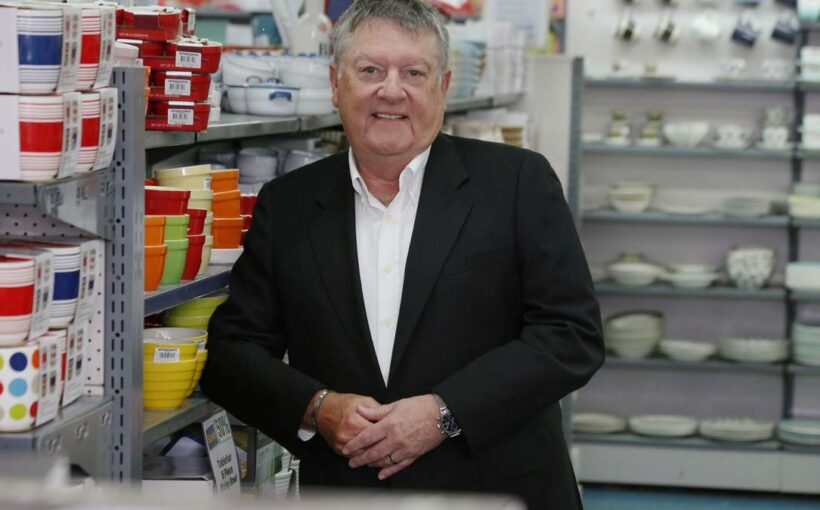A strong performance from retailer Briscoe Group has given a double lift to the back pocket of its managing director Rod Duke.
Duke’s trust has received a bumper $42.9 million dividend through its ownership of Briscoe Group while Duke himself doubled his pay packet.
Last month Briscoe Group revealed a record full-year net profit after tax of $87.91m for the year to January, up 20 per cent, despite its Auckland stores being closed for 84 days during the period.
The company declared a final dividend of 15.5c per share, taking the total dividend for the year to 27c – also up 20 per cent on the previous year.
Its annual report released Friday shows the RA Duke Trust, of which Duke is a trustee,received a dividend payout last month of $42.89m, up from $25.7m in the prior financial year.
The trust owns around 77 per cent of the shares in the retail group.
The annual report also reveals Duke himself received $2,166,319 in total remuneration over the financial year, up from $1,035,052 in its 2021 financial year.
Duke’s base salary jumped from $716,930 to $942,256 while his other benefits, which include contributions to superannuation, life insurance, health insurance and a fuel card, rose from $84,581 to $117,052.
But it was his short-term incentive where he received the biggest boost, rising from $233,541 to $1,107,011.
The short-term incentive is recommended by the human resources committee and approved by the board, according to the annual report.It is linked to the company’s financial performance and performance against strategic initiatives.
The committee is made up of three independent directors while the board has five directors including Duke.
Andy Coupe, a director on Briscoe Group’s board and chair of the human resources committee, declined to comment in time for deadline.
Cathy Hendry, managing director of remuneration consulting firm Strategic Pay, said short-term incentives by their nature were variable.
“The previous year was probably a lot more affected with the Covid lockdown and there was a bounce-back. Depending on what triggers the payment then it is not surprising to see a jump.”
Hendry said Duke’s base salary also rose over the year and often short-term incentives were typically a percentage of base salary.
“So that would have been contributing to it as well.”
She said it was hard to know from the outside what the board wanted him to focus on and what the metrics were this year but clearly they had been triggered resulting in the bigger payout.
Hendry said it had surveyed its clients about short-term incentives asking if changes had been made to them as a result of Covid but most had kept them the same.
That meant organisations that were hit hard by Covid had not paid out as much in short-term bonuses while others that did do well let the payments go through.
“We have seen a real u-shaped response to Covid. Some have done really well and others haven’t.”
In terms of the base pay rising Hendry said the usual reasons for a big base pay increase included the job changing fundamentally such as the business growing through acquisition or the role expanding.
Briscoe Group had an independent remuneration review undertaken in 2021 which included the managing directors’ pay.
“If we were to do a review like that we would be looking at the metrics – how big the organisation is. If he hasn’t had a review for a number of years it is possible he has fallen behind so it could be an adjustment.
“For a jump like that they have either fallen behind the market or the role has been revalued at a bigger role because of changes over the last 12-24 months since it was last reviewed.”
Source: Read Full Article

/cloudfront-ap-southeast-2.images.arcpublishing.com/nzme/2VVGHEURDAGJKKJOKZ55FKBBEI.jpg)